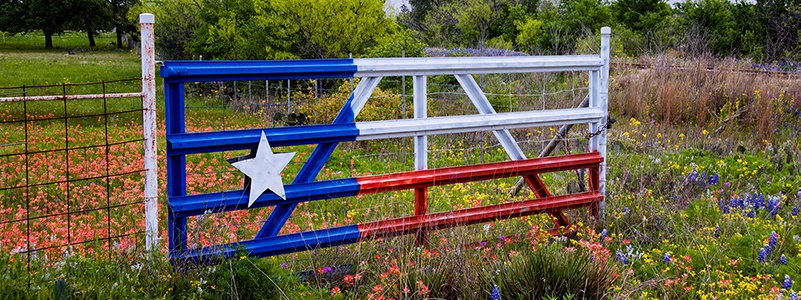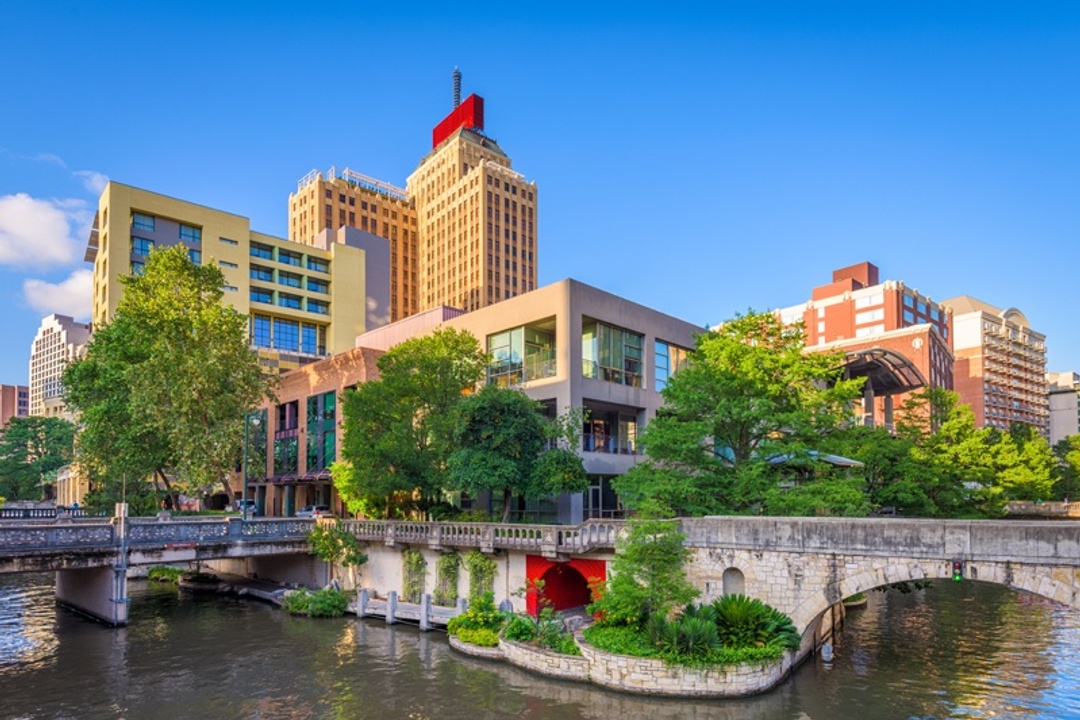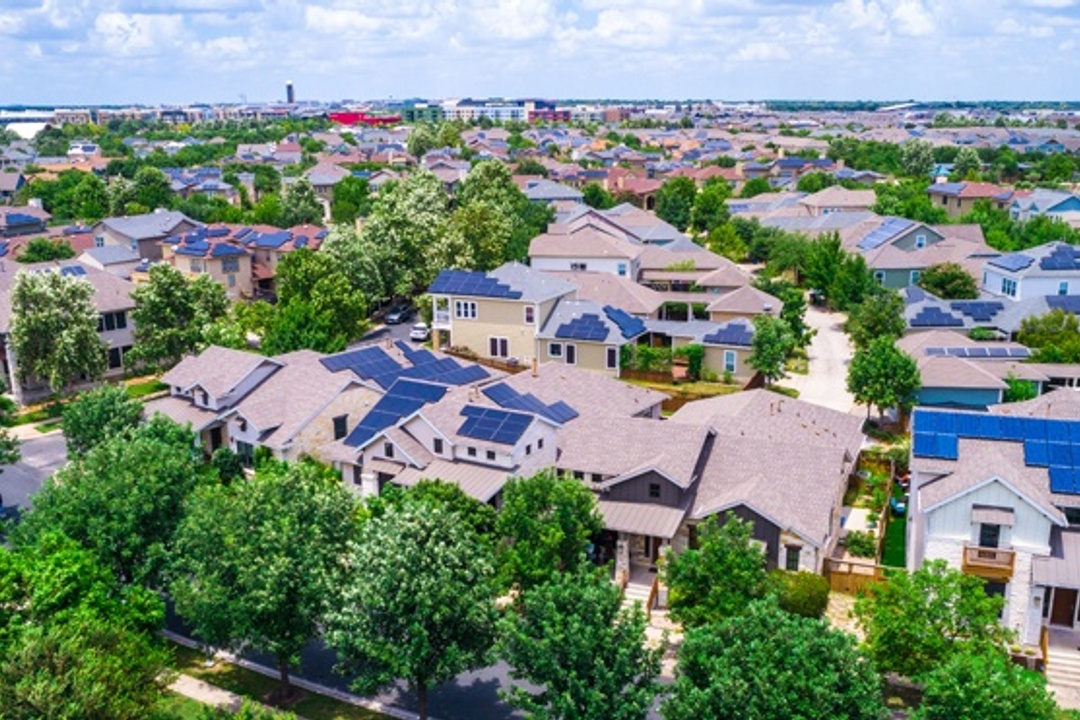
Since 2017, Texas has experienced a population growth of more than 379,000 people, making it one of the fastest-growing states in the country. Despite the popular claim that everyone moving to Texas is from the so-called "California exodus," there are many other states people are moving out of to experience a new life in the Lone Star State.
According to an interactive map from Esri, the top states with the most people who are moving to Texas are California, Florida, Louisiana, Illinois, Oklahoma, New York, Colorado, Virginia, North Carolina, and Arizona.
There are pros and cons to balance out with any new environment before seriously considering the big move. So check out the many different aspects of living in Texas and know what to expect!

What Are The Pros of Living In Texas?
With the population growing in Texas, as more people across the country move to call the Lone Star State home, it might be tempting to pack up your life and make the big move. And who wouldn't want to check out the bustling metros of Austin, Dallas, San Antonio, and Houston? Or retreat to the country and plan out your dream ranch?
However, there are pros and cons of every area that should be taken into account before a big move. For example, you may have heard that the cost of living is more affordable in Texas, but are you ready for the scorching summers every year?
Many other factors can affect your living experience in Texas, so keep reading to weigh your options and find out if it's the perfect place for you to call home!
1. Booming Job Opportunities
Although industries in Texas were hit hard by the pandemic, the state has added over 13,000 jobs, as reported by the Texas Workforce Commission in May 2021. In addition, the loss of over one million jobs during March and April 2020 has also seen recovery, with about one million jobs added back over the year.
So if you've been wondering if a job search in Texas would be fruitful—the answer is yes. Whether you're a Texas native or relocating, you can jump-start a new career in the booming job recovery.

2. Affordable Cost of Living
Compared to the average home prices on the West Coast that can reach over $600,000, Texas offers a much more affordable cost of living with an average home price of $247,210. If you're not looking to buy a home, you'll be pleased to find that the average rent for an apartment in the state of Texas is $1,045 per month.
3. Asset Protection
Texas has some of the best asset protection laws in the United States. For example, if you're involved with a frivolous lawsuit, many of your assets will be off-limits to creditors by Texas state law. So even in bankruptcy, you're protected.
For example, your home is protected with the Texas Homestead Law and cannot be seized and sold to creditors. Your homestead can be urban or rural, as long as your property is your home.
In addition, Texas offers personal property exemptions. This law states that creditors cannot seize certain pieces of personal property. These personal property exemptions go from an aggregate value of $60,000 for families and $30,000 for one person.

4. Year-Round Warm Climate
If you don't mind losing the intense colors of fall or the snowfall of winter, Texas is the perfect state to experience a warm to hot climate all year round. Although Texas can get snow, it is unusual. That said, it is always good to be prepared for possible winter conditions.
According to the National Oceanic and Atmospheric Administration (NOAA), Texas's statewide annual temperature average remains comfortable at 65 degrees Fahrenheit. So if you live for t-shirt and shorts weather all year round, Texas is the place to be!
5. Urban and Rural Living
When it comes to living situations in Texas, the market in some cities is super-hot. But, whether it's living in the bustling cities or retreating to a rural area, there are plenty of diverse lifestyles available in the state.
Don't want to live in the big city? There are plenty of great options outside of the main cities in Texas. Areas like New Braunfels, San Marcos, and Waco are growing rapidly, which means more amenities with a small-town feel.
As for country living, according to a 2013 study by the Center for Rural Studies, only 15.3% of Texans live in rural areas.

6. Diversity and Population Growth
If you're looking for a diverse population, the demographics of Texas are constantly changing. According to a 2019 study from the United States Census Bureau, there has been significant population growth in the west and south of the state. The Dallas-Fort Worth-Arlington area has experienced the most considerable numeric growth, with a gain of 131,767 people in 2018.
According to the U.S. Census Bureau, the racial demographics of Texas have also grown in diversity, with the second largest ethnic group being Hispanic and Latino people.
Asian-Americans have become another significant population in the state, with sizable Indian, Vietnamese, Chinese, Korean, Filipino, Japanese, Hmong, Thai, and Cambodian communities.
7. Family-Friendly Living
There are over 7 million families in Texas, with children living in over 4 million of those households. Most children live in metropolitan areas such as San Antonio, Austin, Fort Worth, Dallas, Houston, and McAllen.
So with all of these families, there are many fantastic areas to raise a family throughout Texas.
Neighborhoods that offer the best educational opportunities for children include Flower Mound, Lago Vista, Plano, Fredericksburg, and Sugarland. In 2011, Family Circle Magazine ranked Friendswood at number 5 in their list for the best family-friendly neighborhoods in the United States.

8. Centralized Transportation Coming Soon
To combat the congested highways of the metro areas, Texas Central is tackling this issue with plans of building the nation's first high-speed railway. This passenger train would connect North Texas and Greater Houston in less than 90 minutes.
Although it's in planning, this infrastructure project will boost the Texas economy and help COVID recovery as new job creation continues.
9. Fewer Government Regulations
If you don't like the government getting in your way, especially as a business owner, then the lack of regulation in Texas would be a welcoming place of opportunity. For example, starting your business in the state is much smoother, with fewer barriers for entry and a small licensing fee.

10. No Income Taxes
If you're moving in from a highly-taxed state like California, you'll get significant relief from having no income tax in Texas, one of the nine states that don't have an income tax. Although this does mean the property taxes are high, having no income tax means you can keep more of the money you earn.
This makes Texas one of the lowest taxed states, which could always attract new residents. In a list from Plano Economic Development, Texas has also been ranked fourth in the nation for low-tax states.
11. Employment Growth and Job Recovery
With the advancing job recovery in Texas after the pandemic, it's essential to feel secure in your employment, which is good to know that the unemployment rate in Texas dropped to 6.5% in June of this year with a total of 654,200 jobs added over that time.
According to Bryan Daniel, Chairman of the Texas Workforce Commission (TWC). These programs aid in employment growth by connecting people to jobs and focusing on pathways to success for Texas residents.
Companies moving to Texas include BAE Systems, an aerospace, and tech company that moved to Austin. In addition, from 2016 to 2018, Texas saw a growth of companies moving in from California, including Tesla, Toyota Motor North America, Kubota Tractor Corporation, Charles Schwab Corporation, and Jamba Juice.

12. Entertainment is All-Around
You can find nearly anything to do for fun over the metro areas of Austin, San Antonio, Dallas, and Houston. In addition, Texas is a hub of exciting entertainment, from energetic live music to vibrant and lively bar scenes.
The entertainment value in Texas is endless, with new sights waiting to be discovered. So whether you drop by for a visit or make the big move, a trip around the metro areas must truly experience the culture.
13. A Diversity of Age Groups
Although Texas is a fantastic place to retire, it doesn't mean that the state is full of people over age 60. On the contrary, there's been significant population growth in recent years of millennials moving into the metro areas of Austin, San Antonio, and Houston.
According to a study by SmartAsset, there was a net migration of over 53,000 people aged 25 to 39 into Texas in 2020. Their 2021 study found that Texas remained the top state for this age range at a net migration of more than 33,000 millennials.

14. A Diverse Food Scene
With so many different cultures coming together in Texas, there's definitely going to be a diversified food scene as a result! The cultural fusion of foods has resulted in Tex-Mex becoming a staple of restaurants throughout the metros.
This now-famous blending of cultures was founded in the Rio Grande Valley and made its way throughout Texas. San Antonio soon became the cradle of these foods, with it later making its way to Austin.
15. An Appreciating Housing Market (In Most Areas)
So how's the housing market in Texas? If you take a look at Austin, which has experienced a 29.8% population growth from 2010-2019, it's a super-hot market right now.
After the pandemic, the real estate market is booming from this growth, and the low supply of housing has led to the rise of home values. So if you're looking for a home with huge appreciation value in Texas, look no further than Austin for a high-demand seller's market.
If you're looking to take advantage of some more affordable prices in a fantastic area, San Antonio, Corpus, and Dallas all have hot markets with a slightly less competitive environment.

What Are The Cons of Living In Texas?
Texas still has negatives to take in before taking the plunge and moving into your new neighborhood with all of its positives. It's one thing to visit a particular place and have a fantastic time, but living there for a few months to a year can certainly make a difference in your experience. So before you finalize your plans, consider these cons of living in Texas.
16. Lower Quality Health Insurance
According to a 2019 report by The Commonwealth Fund, Texas is ranked 49th for health care access and affordability in the U.S. The primary reason behind the low ranking is the rate of uninsured residents due to the state's decision not to expand eligibility for Medicaid.
17. Mosquitoes
If you can't stand creepy crawlies like mosquitoes, keep in mind that there are about 84 mosquito species in Texas. Due to bodies of water found in wooded areas, mosquitoes make a comfortable home in the state.

18. Severe Weather
Texas is vulnerable to severe weather conditions like tornadoes, flooding, hurricanes, wildfires, and thunderstorms. Because the state is so big, these conditions can vary depending on which area you reside in.
So it may be a risky state to call home if you'd rather not experience a diverse range of severe weather. According to the Insurance Information Institute, Texas is ranked second in the Top 10 States by Number of Tornadoes in 2020, with 102 tornadoes and four fatalities recorded that year.
19. Hurricane Exposure
Speaking of severe weather, Texas faces exposure to hurricanes every year. The eastern section of the state is most vulnerable due to its location in the subtropical zone that gets the most rainfall in all of Texas.
The months of April, May, and June typically get the most rain during the year. Unfortunately, these months are also prime time for hurricanes, as well as other severe storms.

20. High Property Taxes
Because Texas has no income tax, that also means that the property tax will be higher to replace those funds. Texas has some of the highest property taxes in the nation. According to a ranking by WalletHub, Texas is 45th of 51 states for the highest property taxes in the U.S. (including the District of Columbia).
21. Power Grid Failure
An unusual winter storm hit Texas this past winter and claimed the lives of 210 people, primarily due to massive power outages that left residents without heat. These outages brought up questions of the state of the power grid in Texas.
Because snowfall isn't a regular sight during the winter, the reliance on the power grid infrastructure in Texas wasn't taken into consideration to become "winterized". So when the intense winter storm came through and caused the power grid to blackout, many Texans were left without heat and electricity. While this is rare, there is some strain on the power grid, and this could potentially happen again.

22. Less Accessible Intrastate Travel
Because Texas is such a large state, intrastate travel is undoubtedly a journey. The state has six regions within its borders: Central Texas, East Texas, The Gulf Coast, South Texas, The Panhandle, and West Texas.
If you were to drive across Texas, it would take you about 12 hours. But, of course, how many people are going to take on that road trip realistically?
Even the metro areas have quite a bit of distance between them. For example, driving nonstop from Dallas to Austin would take you almost three hours. On the other hand, if you wanted to go from Dallas to San Antonio, that would be a road trip totaling just over four hours.
23. More Traffic
Because there's such a large population in Texas, that means motor traffic will be plentiful. Unfortunately, this also means that motor vehicle accidents are common every day on the roadways.
A 2018 study from the Texas Department of Transportation found that Texas has more motor vehicle accidents than any other state. A few factors causing these accidents include speeding and traffic collisions.
In the study, the state roadways' fatality rate was 1.30 deaths per hundred million vehicle miles traveled in 2018. There were also over 12,000 crashes that resulted in serious injuries that same year, with over 14,000 people getting seriously injured.

24. Lack of Seasonal Changes
If you love watching the snowfall in the winter or enjoy the changing leaves and cooling temperatures of fall, then Texas may not be the place for you to experience all four seasons fully.
Visiting Texas throughout the year will offer slight differences in the temperature and a warm climate all year round. Even when most of the U.S. is cooling off by September, you can experience summer weather throughout the fall, with average temperatures in the 70s and 80s.
The warm weather year-round can sound like a dream for some, but if you want to have the full four-season experience of snowfall, sweater weather daily, and avoid muggy summers, then Texas may not be the state to call home.
25. Sweltering Summers
Anyone living in the southern United States can attest to the hot summers that can break someone not acclimated to the climate. Summertime in Texas often results in temperatures reaching the high 80s and 90s.
Recorded temperatures in Dallas for July indicate the daily highs go well past 96 degrees Fahrenheit, rarely falling below 88 degrees. So if hot weather is something you can handle, including the sweltering days of the week, Texas could be your summer paradise for life.

26. Owning a Car Is Necessary for Most Areas
According to Statista, there are over 17 million licensed drivers in Texas. Although some residents in the metro areas may not own a vehicle, about 92% of residents in Houston own at least one vehicle.
Locals from Austin say that a car is needed even for a visit. Even though Dallas has the Dallas Area Rapid Transport (DART), it's still considered a car-centric city. If you're outgoing and want to see everything that the Texas metro areas have to offer, a vehicle will make life much easier.
27. Open-Carry Gun Ownership
Although this is a matter of opinion, if you are not comfortable being around people with an open-carry permit and a gun on their hip, Texas will not be the state for you.
If you're moving in from another state, especially a state like California with minimal gun rights, you may be surprised at the open gun culture in Texas.
It may be a bigger culture shock seeing a gun on someone's hip, so keep this in mind when considering a move to Texas. However, if you’re an advocate of exercising your second amendment rights, this may not be a con for you, but a pro!

28. High Urbanization
Some people love living in the big city, but you may need to reconsider if you're concerned about overcrowding. For example, despite Texas claiming the largest rural population in the country, over 84% of the Texas population lives in the metro areas.
29. Lower Average Income in Some Areas
The average household income in Texas is $61,874 per year. In 2018, the per capita income in several Texas cities ranged from $42k at the highest to $22k at the lower end.
The cost of living is lower in Texas, making the wages in many areas lower. This won’t be a problem if you’re living in an area with a low cost of living, but in some boomtown areas, the cost of living (such as housing prices) are rising quickly. Finding a salary to meet this increase is something to consider when job hunting in Texas!

30. Slower Internet Connection in Some Areas
The "digital divide" is undoubtedly a factor in the uneven distribution of high-speed internet access in Texas. Although the state's internet ranks well for affordability at under $60 per month, 2.1 million residents don't have access to a wired high-speed internet connection.
According to an internet ranking for Texas by Broadband Now, 2.7 million residents only have access to one internet provider, and another 1.2 million residents are without internet access. The majority of these Texans without access are in rural areas, with Silver, Texas, being the worst town for internet access.
In larger towns and cities, internet connectivity is not an issue, so you should only be concerned if you're considering country living.
When considering life in Texas, it's much more than warm weather all year round or the quirky and fun nature of the metro areas.
To make it in Texas, you've got a chance at secure employment with lower taxes and an affordable living environment. Depending on your wants, needs, and goals, Texas could be the perfect place for you.
However, it would be best to contemplate all aspects of life in this southern state before making the big move. If you decide to become a resident, check out more tips and tricks to find your perfect home in Texas on HomeCity!










